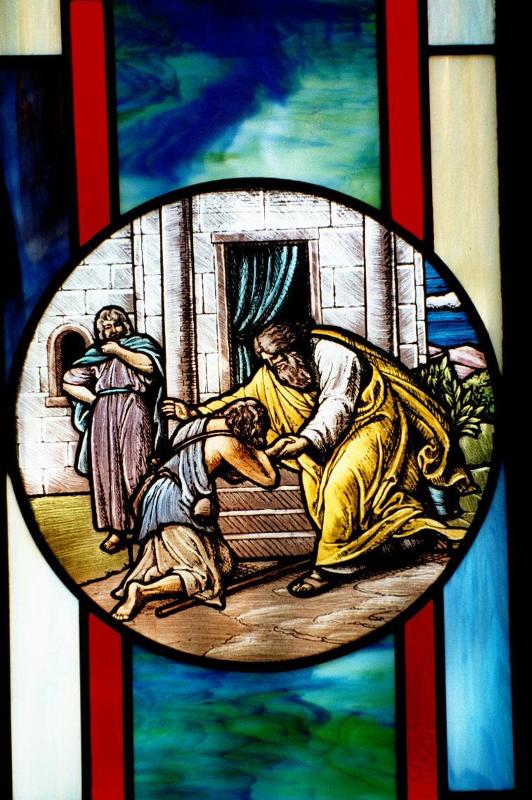The parables of Luke 15 were birthed out of the Pharisees' mumbling among themselves that Jesus ate and fraternized with
sinners. Jesus knew what the Pharisees were thinking. He could overhear their muttering. However, rather than slinking away and avoiding their accusations of questionable behavior, He confronted them with three stories about lost things being found. Actually, to be precise Jesus tells one story in three different ways.
Verse 3 says
“Then Jesus told them this parable...” There are three different scenes to describe the same story about lost thing. Today, we are going to focus in on how Jesus redefines sin.
For the Pharisees, sin was merely
breaking the rules. But in these stories, Jesus redefines their paradigm to help us understand that sin is so much more complex.
In the first a shepherd with one hundred sheep loses one. He leaves the ninety nine to go on a search and rescue mission for the lost sheep. He returns from the wilderness with the sheep on his shoulders, and invites everyone to rejoice with him over the return of the one lost sheep.
In the second scene, an nameless woman loses one of her ten silver coins. She turns her house upside down, until she finds it. And when she does find it, joy overflows, and again, a celebration!
In the third scene a rebellious son turns his back on his Father, losing himself in the far country. Broke and destitute, he turns towards home to live as a servant rather than a son. But before he can spill out his excuses, his father, the one he rejected, runs to him in an open, joy-filled embrace. The lost son has come home. And again, a celebration!
Luke 15 is three scenes telling the same story of lost things being found. Why? The Pharisees had a 21st century view of what was sinful. To them, a sinful person was someone who broke the religious rules. Sinful people were the rule-breakers. And rule-breakers are lost to God.
But in these three scenes Jesus goes way beyond the Pharisees definition of sin. Sheep were known as foolish animals. So the people hearing Jesus when he spoke this parable would immediately assume the sheep was
lost because of its foolishness. It did a dumb, sheep-like thing and was separated from the rest of the flock and the shepherd that protected it. It followed its appetite into lostness
A coin is in inanimate object, incapable of thought and certainly incapable in itself of finding its way home. The coin is l
ost through thoughtlessness of its owner.
And the prodigal son finds himself lost in a far country because of his own poor choices. The son is
lost because of willfulness.
The lostness of these three objects were not just the result of breaking rules. In these three scenes Jesus is challenging the Pharisees simplistic view of sin...that sin is breaking religious rules. Jesus is saying that
people find themselves lost, far from God, for a complex set of reasons.
Tim Keller gives a great example. "Mr. Smith has a problem with abusive anger, he often flies off the handle and is verbally abusive and sometimes physically so. Why? Is his problem genetic? Is it a matter of brain chemistry? Is it just part of his inborn nature,
as in the example of the sheep? Or is his problem the result of a bad environment? Perhaps the result of poor parenting and family life? Was he, like the coin, mismanaged by his 'supervisors'? Or does his problem stem from selfishness and pride, as with the prodigal son?"
The answer is that usually, in varying degrees, it is all of the above. The fact is, usually sin (mistakes and failures) occur in our lives for a mixture of complex reasons: our foolishness, other's thoughtlessness, and/or our willfulness. Keller continues: "Sin is deeply complex. It is inborn in you, it is magnified by sinful treatment, and is deepened and shaped by your own choices."
Perhaps we can find discover a greater depth of mercy for the sinner when we realize the complexity of his lostness.







